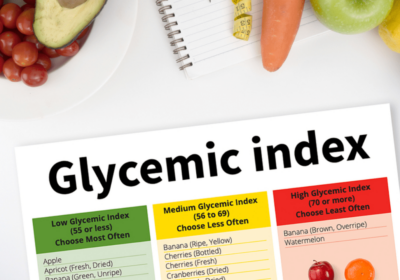
Exploring the benefits of plant-based diets for women’s health
Introduction
Plant-based diets have gained popularity in recent years, and for good reason. They offer a plethora of health benefits, and these advantages extend to women’s health as well. In this article, we will explore the numerous benefits of adopting a plant-based diet for women, including improved overall health, hormonal balance, reduced risk of chronic diseases, and the positive impact on probiotics and the gut microbiome.
what is a plant-based diet?
A plant-based diet is centered around whole, plant-derived foods and minimizes or excludes animal products. It includes fruits, vegetables, whole grains, legumes, nuts, and seeds, while reducing or eliminating the consumption of meat, dairy, and other animal-derived products.
health benefits for women:
- improved heart health: plant-based diets are associated with lower levels of saturated fats and cholesterol, reducing the risk of heart disease—a leading cause of death among women.
- weight management: plant-based diets tend to be lower in calories and saturated fats, making them conducive to weight management. Maintaining a healthy weight is essential for women’s health and can reduce the risk of obesity-related conditions.
- hormonal balance: some studies suggest that plant-based diets may help regulate hormonal fluctuations, potentially easing symptoms of premenstrual syndrome (pms) and polycystic ovary syndrome (pcos).
- bone health: while dairy is often promoted for bone health, plant-based sources of calcium, such as leafy greens, fortified plant milks, and tofu, can support strong bones without the drawbacks of saturated fats found in dairy.
- breast health: plant-based diets, rich in antioxidants and anti-inflammatory compounds, may contribute to breast health and reduce the risk of breast cancer.
- digestive health: the fiber content in plant-based diets supports digestive health and regular bowel movements, reducing the risk of constipation and related issues.
- reduced risk of type 2 diabetes: plant-based diets are linked to better blood sugar control and a lower risk of type 2 diabetes. This is particularly important for women’s health as diabetes can affect pregnancy and hormonal balance.
- reduced risk of certain cancers: plant-based diets are associated with a lower risk of certain cancers, including colon, ovarian, and uterine cancers. The abundance of antioxidants in plant foods may play a protective role.
- enhanced fertility: maintaining a healthy weight through a plant-based diet can enhance fertility and increase the chances of a healthy pregnancy.
considerations for women:
- nutrient awareness: women on plant-based diets should pay attention to essential nutrients like vitamin b12, iron, calcium, and omega-3 fatty acids. Supplements or fortified foods may be necessary to meet these needs.
- balanced diet: ensure a diverse and balanced diet to obtain a wide range of nutrients. Include a variety of plant foods to cover your nutritional bases.
- pregnancy and breastfeeding: plant-based diets can be suitable during pregnancy and breastfeeding, but careful planning is essential to ensure proper nutrient intake for both the mother and the developing baby.
- menopause: a well-planned plant-based diet can support women through menopause by providing phytoestrogens that may help manage symptoms like hot flashes.
impact on probiotics and the microbiome:
A plant-based diet can also have a profound impact on probiotics and the gut microbiome:
- Increased probiotic diversity: plant-based diets, rich in fiber from fruits, vegetables, legumes, and whole grains, provide an ideal environment for a diverse range of probiotic bacteria to flourish. A diverse microbiome is associated with better digestive health and a strengthened immune system.
- Higher prebiotic intake: prebiotics are non-digestible fibers that serve as food for probiotics. Many plant-based foods, such as bananas, onions, garlic, and asparagus, are excellent sources of prebiotics, promoting the growth and activity of probiotics in the gut.
- Enhanced gut barrier function: plant-based diets have been linked to improved gut barrier function, which helps prevent harmful substances from entering the bloodstream. A healthy gut barrier supports the survival and effectiveness of probiotic bacteria in the intestines.
- Reduced inflammatory response: plant-based diets are often associated with lower levels of inflammation. A less inflamed gut environment is more conducive to the growth and stability of probiotic communities.
- Potential for lactobacilli and bifidobacteria: some studies suggest that a plant-based diet may promote the growth of specific probiotic strains, such as lactobacilli and bifidobacteria, which are known for their digestive health benefits.
- Increased microbial diversity: plant-based diets tend to support greater microbial diversity in the gut. A diverse microbiome is associated with better nutrient absorption, improved metabolism, and enhanced overall health.
- Shift in microbial composition: adopting a plant-based diet can lead to changes in the relative abundance of various bacterial species in the gut. Research suggests that plant-based diets may increase the prevalence of fiber-digesting bacteria.
- Production of short-chain fatty acids (scfas): plant-based diets are rich in dietary fiber, which serves as a substrate for the production of short-chain fatty acids (scfas) by gut bacteria. Scfas, such as butyrate, acetate, and propionate, have numerous health benefits, including anti-inflammatory effects and support for a healthy gut lining.
In conclusion, a plant-based diet offers numerous health benefits for women, ranging from improved heart health to hormonal balance and reduced risk of chronic diseases
. Additionally, it can have a positive impact on probiotics and the gut microbiome, promoting a diverse and healthy gut environment. However, it’s important to adopt a well-balanced plant-based diet to ensure that your gut microbiome receives the necessary nutrients for optimal health. By embracing a plant-based lifestyle and considering individual health needs, women can enjoy improved overall health and well-being.


















